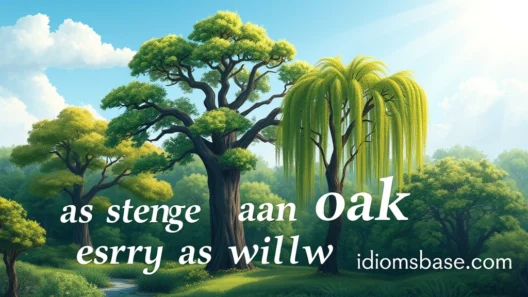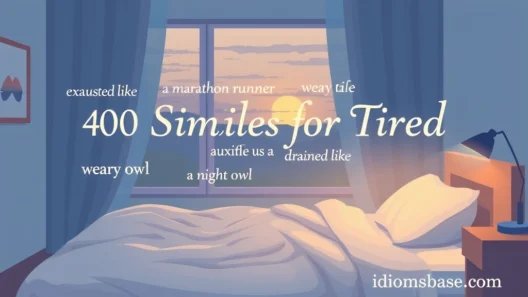Have you ever thought about how precious trust is? It's like that invisible thread that connects us all, making relationships, businesses, and even societies function smoothly. But how do you truly describe something so fundamental yet so intangible? That's where similes come in! They help us paint a vivid picture, comparing trust to something familiar, making it easier to grasp its essence.
Imagine trying to explain trust to someone who’s never encountered it. It would be quite a challenge, wouldn't it? Similes act as a bridge, connecting abstract concepts to concrete experiences. They allow us to explore the many facets of trust – its fragility, its strength, its growth, and its occasional disappearance.
In this exciting exploration, we're going to dive into 40 amazing similes for trust. Get ready to discover new ways to think about and articulate this vital human experience. You'll find comparisons that are poetic, practical, and sometimes even a little bit humorous. Let's embark on this journey together!
Understanding Trust: A Foundation for Everything
Trust isn't just a word; it's a feeling, a belief, and a cornerstone of human interaction. It's the confidence you place in someone or something, believing they will act in your best interest or live up to their promises. Without trust, communication breaks down, cooperation becomes impossible, and relationships wither. It’s truly the glue that holds our world together.
Think about the last time you felt truly trusted, or truly trusted someone else. It's a powerful feeling, isn't it? It builds bridges, opens doors, and fosters a sense of security. Conversely, the absence of trust can lead to anxiety, suspicion, and isolation. That's why understanding and nurturing trust is so incredibly important in every aspect of our lives.
40 Brilliant Similes for Trust
Let's explore these wonderful comparisons that help us understand the multifaceted nature of trust. Each one offers a unique perspective, inviting you to reflect on what trust means to you.
- Trust is like a fragile glass sculpture: Beautiful, but easily shattered.
- Trust is like a sturdy oak tree: Takes time to grow, but incredibly resilient once established.
- Trust is like a secret whispered in the dark: Once revealed, it can't be unsaid.
- Trust is like a well-oiled machine: Operates smoothly when all parts work together.
- Trust is like a delicate spiderweb: Intricate and strong, but easily broken by a careless touch.
- Trust is like a warm blanket on a cold night: Offers comfort and security.
- Trust is like a bank account: Easy to withdraw from, hard to deposit into once depleted.
- Trust is like a compass: Guides you in the right direction when you're lost.
- Trust is like a hidden treasure: Rare and incredibly valuable.
- Trust is like a well-built bridge: Connects two points, allowing safe passage.
- Trust is like a blooming flower: Needs nurturing and care to flourish.
- Trust is like a quiet whisper: Soft, but incredibly impactful.
- Trust is like a sturdy anchor: Keeps you grounded in turbulent times.
- Trust is like a clear sky after a storm: Brings a sense of calm and clarity.
- Trust is like a perfectly tuned instrument: Produces harmony when played correctly.
- Trust is like a steady heartbeat: Essential for life to continue.
- Trust is like a solid rock: Provides a firm foundation.
- Trust is like a deep well: Provides sustenance and refreshment.
- Trust is like a loyal dog: Unwavering and devoted.
- Trust is like a carefully tied knot: Strong and secure.
- Trust is like a whispered promise: Holds immense weight and expectation.
- Trust is like a mirror: Reflects what you put into it.
- Trust is like a shared secret: Creates a strong bond.
- Trust is like a safe harbor: Offers protection from the storms of life.
- Trust is like a new habit: Takes consistency to build.
- Trust is like a precious jewel: Rare, valuable, and hard to replace.
- Trust is like a strong current: Can carry you forward.
- Trust is like a sturdy handrail: Offers support when you're unsteady.
- Trust is like a comforting embrace: Provides warmth and reassurance.
- Trust is like a deep root system: Invisible, but essential for growth.
- Trust is like a guiding star: Leads you home.
- Trust is like a quiet understanding: Doesn't need many words.
- Trust is like a good reputation: Hard-earned and easily lost.
- Trust is like a reliable old friend: Always there for you.
- Trust is like a well-tended garden: Requires constant attention to thrive.
- Trust is like a seamless transition: Makes things flow smoothly.
- Trust is like a steady flame: Provides light and warmth.
- Trust is like a shared journey: Requires mutual reliance.
- Trust is like an open book: Clear and transparent.
- Trust is like a calm ocean: Serene and inviting.
Why Are Similes So Powerful for Describing Trust?
You might be wondering why we've spent so much time exploring these comparisons. The truth is, similes are incredibly powerful tools for communication. They don't just describe; they evoke.
Bridging the Abstract and Concrete

Trust, as we've discussed, is an abstract concept. It's not something you can touch or see directly. Similes help to ground it in the real world, making it relatable and understandable. By comparing trust to a "sturdy oak tree" or a "fragile glass sculpture," we immediately grasp aspects of its nature that might otherwise be difficult to convey.
Enhancing Emotional Connection
Similes also tap into our emotions. When you read "trust is like a warm blanket," you don't just understand the comparison; you feel the comfort and security it implies. This emotional resonance makes the concept of trust more impactful and memorable.
Fostering Deeper Understanding
By offering multiple perspectives, similes encourage you to think more deeply about the subject. Each simile highlights a different facet of trust – its vulnerability, its resilience, its importance. This multi-faceted approach leads to a richer and more nuanced understanding.
Key Takeaways

- Trust is Fundamental: It's the bedrock of all relationships and societal functions.
- Similes Illuminate: They transform abstract concepts like trust into relatable images.
- Trust is Multifaceted: It can be fragile, strong, growing, or enduring, as shown by various similes.
- Building Trust Takes Time: Like an oak tree or a well-tended garden, trust requires nurturing.
- Trust is Precious: It's a valuable asset, like a hidden treasure or a precious jewel, easily lost.
Frequently Asked Questions (FAQ)
Q1: What is the main purpose of using similes for trust?
Using similes for trust helps to make an abstract concept more concrete and understandable. They create vivid images in your mind, allowing you to grasp the various qualities of trust, such as its fragility, strength, or value, through comparisons to familiar objects or experiences. This makes the concept more relatable and impactful.
Q2: How can understanding these similes help in real-life situations?
Understanding these similes can significantly enhance your communication and empathy. When you can articulate the nature of trust using such vivid comparisons, you can better explain its importance to others, understand why it might be difficult to build or easy to break, and even identify strategies for restoring it. For instance, knowing "trust is like a fragile glass sculpture" might make you more careful with someone's trust, while "trust is like a sturdy oak tree" can remind you that building strong trust takes consistent effort over time.

Q3: Are there any common themes among these similes for trust?
Yes, absolutely! Several common themes emerge. Many similes highlight the fragility of trust (e.g., glass sculpture, spiderweb), emphasizing how easily it can be broken. Others focus on its strength and resilience once established (e.g., oak tree, solid rock). The theme of time and effort required to build and maintain trust is also prominent (e.g., blooming flower, well-tended garden). Finally, the value and importance of trust are often underscored (e.g., hidden treasure, precious jewel).
Q4: Can similes also describe the loss of trust?
While these similes primarily describe trust itself, many of them implicitly suggest the consequence of its loss. For example, if "trust is like a fragile glass sculpture," then the loss of trust is like that sculpture shattering. If "trust is like a bank account," its loss is like the account being empty. The similes often highlight the contrast between a state of trust and its absence, emphasizing the negative impact when it's gone.
Q5: How do similes differ from metaphors when describing trust?
The key difference lies in the use of "like" or "as." A simile directly compares two unlike things using "like" or "as" (e.g., "Trust is like a sturdy oak tree"). It states that trust is similar to an oak tree in certain ways. A metaphor, on the other hand, directly states that one thing is another, without using "like" or "as" (e.g., "Trust is the bedrock of relationships"). Metaphors create a stronger, more direct identification, while similes draw a comparison. Both are powerful literary devices for describing trust, but they do so in slightly different ways.
Conclusion
Wow, what a journey through the world of trust, illuminated by the beauty of similes! You've seen how this seemingly simple concept can be described in so many profound and insightful ways. From a "fragile glass sculpture" to a "sturdy oak tree," each comparison offers a unique lens through which to view the essence of trust.
Remember, trust is something we encounter every single day, in every relationship and interaction. By understanding its many facets, you're better equipped to build it, cherish it, and even work to restore it when it falters. Which of these similes resonated most with you? Perhaps one sparked a new thought or feeling about trust you hadn't considered before.
Keep these vivid images in mind as you navigate your own relationships. And the next time you find yourself trying to explain the invaluable nature of trust, you'll have a treasure trove of brilliant similes at your fingertips! What's your favorite simile for trust, and why? Share your thoughts – we'd love to hear them!






